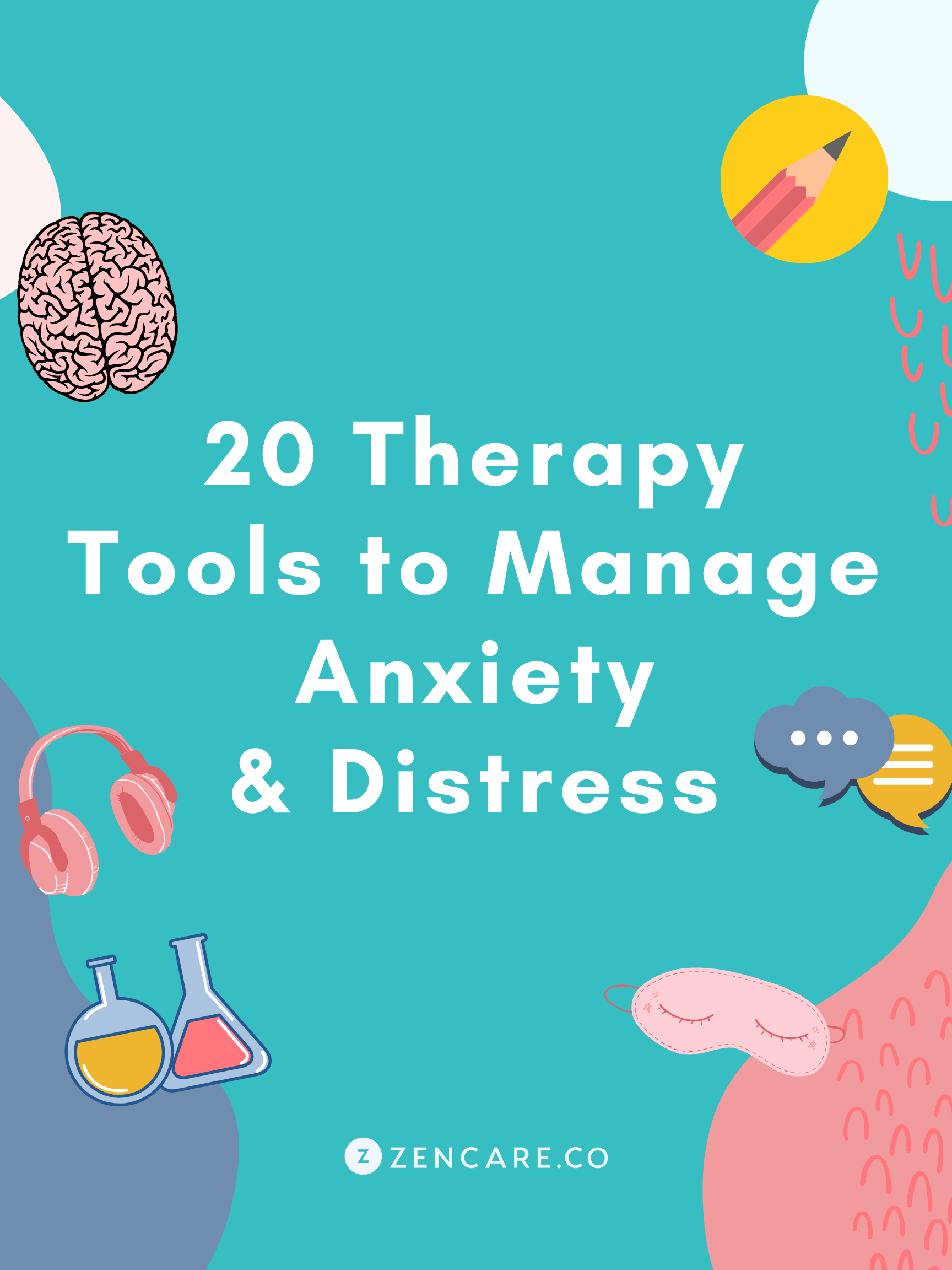Effective Strategies in Coaching for Anxiety Disorder: A Course to Recuperation
When facing anxiousness conditions, you might feel uncertain and overwhelmed of where to transform. Effective coaching techniques can lead the way for recovery, giving you with the devices to navigate your obstacles. From cognitive-behavioral methods to mindfulness practices, each strategy offers one-of-a-kind benefits. Understanding just how these methods collaborate can make a considerable difference in your trip. So, what are the crucial components that will direct you in the direction of lasting modification?
Recognizing Anxiety Conditions: An Extensive Review
When you think of stress and anxiety disorders, it's crucial to acknowledge that they encompass a variety of problems characterized by too much fear or concern. These conditions can manifest in various ways, including generalized anxiousness condition, panic disorder, and social anxiety disorder. You may experience symptoms like fast heart beat, sweating, or trouble focusing. It prevails to really feel overwhelmed, and these sensations can interrupt everyday life.Understanding the origin of anxiety is crucial. They can stem from genes, mind chemistry, or ecological factors. You may discover that specific circumstances cause your anxiousness, making it important to identify these triggers.
Cognitive Behavioral Therapy (CBT): Reshaping Thought Patterns

Mindfulness and Leisure Techniques: Cultivating Present-Moment Recognition
Mindfulness and relaxation strategies help you grow present-moment awareness, permitting you to manage anxiousness much more properly. By focusing on the below and now, you can damage free from the cycle of concern and rumination that frequently gas anxiety. Begin by exercising deep breathing exercises. Inhale gradually through your nose, hold for a moment, after that breathe out via your mouth. This easy technique can relax your mind and body.Engage in mindfulness meditation by reserving a couple of mins each day to observe your thoughts without judgment. Take note of your breath, experiences, and the sounds around you. You might likewise locate worth in progressive muscle relaxation, where you strained and kick back each muscular tissue team, promoting physical and mental ease.Incorporating these methods right into your day-to-day regimen can develop a better feeling of control, reduce anxiety signs, and improve your general wellness. Bear in mind, uniformity is vital to experiencing the benefits.
Exposure Therapy: Facing Worries Slowly
Direct exposure treatment aids you face your fears gradually, allowing you to build confidence in time. By utilizing progressive direct exposure strategies, you can gradually challenge what makes you distressed while creating reliable coping devices. This procedure not only reduces your concern however also equips you to handle stress and anxiety better.
Progressive Direct Exposure Methods
When you face your worries gradually, you can successfully minimize anxiety and reclaim control over your life. Progressive direct exposure strategies include encountering your concerns step by step, starting with much less daunting situations. You could begin by visualizing the been afraid situation, then proceed to seeing videos or images connected to it. Eventually, you can exercise facing the fear in the real world, but just when you feel ready. This approach allows you to construct confidence as you relocate with each stage. Bear in mind to pace on your own; rushing can raise stress and anxiety. Commemorate little victories along the road, as each advance empowers you. By constantly applying these methods, you'll find that your concerns start to shed their grip on your mind.
Structure Coping Mechanisms
Structure effective you can check here coping systems is essential for handling anxiousness, particularly as you encounter your fears slowly through direct exposure treatment. Start by identifying your certain anxieties and breaking them down right into convenient actions. By doing this, you can gradually confront each fear without coming to be overloaded. If you have a hard time with social situations, start by practicing small interactions, like welcoming a neighbor.Alongside steady direct exposure, include leisure methods such as deep breathing or mindfulness to relax your mind before facing triggers. Keep a journal to track your progression and commemorate tiny victories. Surround yourself with supportive friends or a specialist that can assist you. Keep in mind, it's a journey-- patience and determination will strengthen your coping devices, bring about better strength versus stress and anxiety.
Supportive Counseling: Structure Depend On and Connection
To efficiently support someone with anxiousness, developing count on and rapport is important from the very first session. You'll desire to produce a safe room where they feel comfortable sharing their thoughts and feelings without judgment. Energetic listening is crucial; show real rate of interest in what they share. Acknowledge their sensations and verify their experiences. It is necessary to be understanding, as this assists build a link and motivates openness.Be regular in your technique and maintain discretion to additional reinforce that depend on. Use open body movement and make eye contact to share your attentiveness. Bear in mind, your persistence goes a lengthy method; structure connection requires time, and it's crucial to value their pace. By fostering this encouraging environment, you'll empower them to engage even more fully in the healing process, making it less complicated for them to explore their anxiousness and pursue recuperation.
Team Therapy: Shared Experiences and Cumulative Healing
Team therapy can be an effective tool for those taking care of anxiety problems, as it enables people to share their experiences and find relief in the understanding of others. In this supportive atmosphere, you can express your feelings without fear of judgment. Hearing others' tales can normalize your very own experiences, making you really feel less alone in your struggle.Participating in team therapy assists you create coping methods through shared understanding and understandings. As you listen to others, you may uncover new methods to tackle your anxiousness that you hadn't taken into consideration before.Moreover, the collective healing that takes place in these sessions can foster a sense of area, advising you that you're not facing your obstacles alone.Building links with others that recognize your struggle can boost your confidence and motivation to face your anxiousness. Team treatment develops a room where development and recovery come to be a common trip, empowering you to take steps towards recuperation.
Incorporating Lifestyle Modifications: Alternative Methods to Anxiousness Management
While therapy offers necessary assistance, incorporating lifestyle modifications can significantly improve your ability to manage anxiety. Start by including normal exercise right into your routine. Exercise releases endorphins, which can elevate your mood and lower stress. Next off, pay focus to your diet regimen. Consuming a well balanced diet regimen rich in fruits, vegetables, and entire grains can favorably affect your mental well-being. Do not forget rest-- aim for 7-9 hours per night, as quality remainder is crucial for emotional regulation.Mindfulness techniques, such as reflection or yoga, can additionally assist you stay based and present. Consider alloting time each day to exercise these methods. Limitation caffeine and alcohol usage, as they can exacerbate anxiousness symptoms. By making these all natural modifications, you develop a stronger structure for handling anxiousness, matching the advantages acquired from treatment. Bear in mind, every little action rely on your path to recovery.
Regularly Asked Questions
What Are the Usual Physical Signs of Anxiety Problems?
Typical physical symptoms of anxiousness disorders consist of fast heart Check Out Your URL rate, lack of breath, muscle stress, sweating, and migraines. You could likewise experience fatigue, lightheadedness, or intestinal concerns, which can additionally complicate your day-to-day live.
For How Long Does Therapy for Anxiety Normally Take?

Therapy for anxiety usually takes a couple of weeks to several months, depending upon your specific demands and progress. counselling for anxiety. You'll discover that routine sessions aid you develop coping methods and obtain understandings into your anxiety
Can Stress And Anxiety Conditions Be Entirely Healed?

What Should I Carry out in an Anxiety attack?
Throughout a panic attack, concentrate on your breathing. Breathe in deeply via your nose, hold for a moment, then breathe out gradually - counselling for here anxiety. Ground yourself by naming items around you, and advise yourself it will pass
Exist Medications for Stress And Anxiety Disorders?
Yes, there are a number of drugs for anxiety disorders, consisting of antidepressants and benzodiazepines. You need to get in touch with a healthcare professional to find the ideal treatment plan tailored to your details needs and circumstances for the very best results. When you believe concerning anxiety conditions, it's vital to acknowledge that they incorporate a range of conditions defined by too much fear or concern. These conditions can show up in various methods, consisting of generalised stress and anxiety disorder, panic condition, and social stress and anxiety problem. Structure effective coping systems is necessary for taking care of anxiety, particularly as you face your concerns progressively via exposure therapy. Group therapy can be a powerful tool for those dealing with stress and anxiety problems, as it permits people to share their experiences and locate solace in the understanding of others. As you listen to others, you may discover new ways to tackle your anxiety that you hadn't thought about before.Moreover, the collective healing that happens in these sessions can promote a feeling of area, advising you that you're not encountering your challenges alone.Building connections with others who comprehend your struggle can increase your confidence and motivation to confront your anxiety.